The Top 10 Most Important Things to Do as a Prepper
Preparing for emergencies and ensuring your survival during times of crisis is an essential mindset. As a prepper, there are certain things you should do to increase your chances of surviving in challenging situations. It’s important to me that people keep prepping simple, which is why I want to talk about the top 10 most important things to do as a prepper.
In today’s world with conflict and natural disasters reported in the news and social media daily, being able to live a self-reliant life can be critical. Knowing you’re prepared for most situations provides confidence and comfort.
You don’t have to spend a lot of money or seem “over the top.” Just be willing to take the time to put a plan in place, communicate that plan with your family, and practice various steps so you know you’re ready.
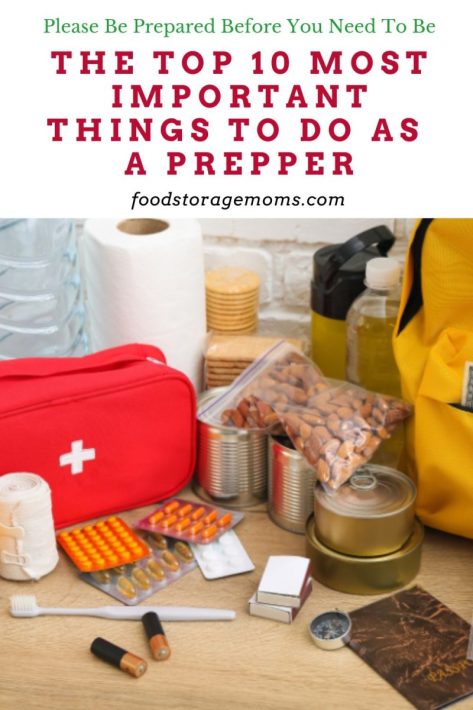
1. Assess Your Risks and Create a Plan
Before diving into prepping, take the time to assess the potential risks and threats specific to your location. Identify natural disasters, social unrest, power outages, or any other events that are likely to affect your safety. Once you have a clear understanding of the risks, it’s time to put together your emergency plan. Emergency Preparedness-Make A Plan
Consider factors such as the number of people in your household, their needs, and any specific challenges you might face. Include evacuation routes, rendezvous points, and methods of communication in your plan. A well-designed strategy will help you stay calm and focused during an emergency.
2. Build a Stockpile of Essential Supplies
One of the fundamental aspects of prepping is building an emergency stockpile. Ensure you have a sufficient quantity of non-perishable food, water, medications, and other essential supplies that can sustain you and your family for an extended period. Aim for a minimum of three months’ worth of supplies. I’ve based most of my emergency food storage on freeze-dried food. Whether it’s vegetables like beans, meats, or various fruits, freeze-dried supplies make a lot of sense.
Don’t get discouraged if it takes some time to build up your stockpile. I’ve told my readers to start one can at a time if they have to as they put together food storage. Water storage can get tricky. Try to have enough water so you have four gallons of water per person per day. You’ll need a way to treat the water and that can include water filter systems or even water purification tables for just one gallon of water.
I don’t suggest you purchase a bunch of supplies by using a credit card, that could just add to your stress.
Rotate your stockpile regularly to maintain freshness and ensure that you have access to the necessary items when needed. Consider including items like a first aid kit, flashlights, lanterns, extra or rechargeable batteries, personal hygiene products, and tools like a manual can opener. Remember to include items specific to your family’s needs, such as baby formula, diapers, or pet supplies.
3. Learn Basic First Aid and Self-Defense Skills
In crisis situations, medical assistance may not be readily available. Therefore, it is crucial to acquire basic first-aid knowledge and skills. Enroll in a first aid course to learn how to respond to common injuries, perform CPR, and manage wounds effectively. Fitness for Survival It’s great to have a first aid kit, but you need to know how to use the contents, whether it’s bandages, splints, gauze, tweezers, special scissors, ointments, or medications.
Consider learning self-defense techniques to protect yourself and your loved ones if confronted with potential dangers. Knowing how to handle medical emergencies and defend yourself can make a significant difference in survival scenarios. Practice these skills regularly to maintain proficiency and confidence.
Be prepared to protect your family however you can. You know what I’m talking about. Here are two other choices. Bear Spray and Pepper Spray (I realize some states prohibit the use of these, check your locality).
4. Establish Communication Channels
During emergencies, communication becomes vital. Set up alternative communication channels, such as two-way radios or satellite phones, to stay connected with your family and fellow preppers. Familiarize yourself with emergency radio frequencies and ensure your devices are fully charged.
I have a hand-crank radio that I can use to listen to weather updates and emergency alerts.
Consider creating a communication plan with your loved ones, designating specific channels for walkie-talkies and protocols to follow in case traditional methods fail. Having multiple means of communication will help you stay informed and coordinate effectively during a crisis. Emergency Forms of Communication
We rely on our cell phones so much! They may not work if cell towers are down or networks are not operating as designed. For sure, make sure your emergency kit includes a charger, and a solar charger is even better.
5. Secure Your Shelter and Property
Protecting your shelter and property is paramount. Evaluate the vulnerabilities of your home and strengthen its security measures. Install sturdy locks, reinforce doors and windows, and consider additional security systems like alarms or surveillance cameras to deter potential threats.
Create a safe room or designated area where you can seek refuge during an emergency. Ensure this space has supplies, communication tools, and essential provisions readily available. Regularly check and maintain your home’s structural integrity to minimize risks. How to Use a Tarp for Shelter
Take the time to make certain the doors and windows have weather-related seals and caulking in place. If you have to evacuate, you’ll need to have tents, a sleeping bag for all family members, tarps, and possibly portable heating units. Again, this is where your plan needs to have enough detail that you consider various scenarios and how to meet needs in a crisis.
6. Develop Survival Skills
Having survival skills can significantly increase your chances of thriving in challenging scenarios. Learn important skills such as fire-making, purifying water, navigation, foraging for food, and basic construction techniques. These abilities will prove invaluable when modern infrastructure is unavailable.
Practice these skills in controlled environments to build confidence. Consider joining survival training courses or participating in outdoor activities that allow you to test and enhance your skills.
Being able to cook when your appliances aren’t functioning is also important. Check my archive above for posts about cooking when your power is out. Have candles, lighters, fire starter materials, fuel for outdoor cooking devices, trash bags, and clean water for cooking and cleanup.
7. Create a Financial Safety Net
Financial preparedness is often overlooked, but it is so important to teach this skill. Establish an emergency fund that could cover your expenses for at least six months. Have a variety of investments depending on your age and retirement status. Also, consider having physical assets like gold or silver as a tool against economic instability. Silver: What You Need to Know
Reduce your reliance on traditional banking systems by keeping some cash on hand. Consider acquiring barterable items such as non-perishable food, water filters, or essential supplies that could be valuable in a crisis situation. How to Barter with Food and Water
8. Join a Community of Preppers
Being part of a prepper community can provide invaluable support, knowledge and skill sharing, and additional resources. Engage with like-minded individuals through online forums, social media groups, or local meetups. Building a network of preppers can help you learn new skills, share ideas, and offer a support system during crises.
Collaborate with your community to pool resources, organize training sessions, and exchange information on preparedness strategies. Having a reliable support network can make a big difference in challenging times. What You Need In A Community To Survive You may want to look into Community Emergency Response Team (C.E.R.T.) training. Usually, they’re sponsored by your local fire department.
9. Stay Informed and Continuously Learn
The world is constantly changing, and it’s essential to stay informed about potential risks and threats. Regularly update your understanding of disaster preparedness, survival techniques, and current events. Subscribe to reliable news sources and follow reputable organizations that provide updates on emergencies, natural disasters, and other relevant topics.
Always educate yourself by reading books, attending workshops, and participating in online courses related to prepping, survival skills, and self-sufficiency. Stay open-minded and adaptable, as new information and techniques may arise later. The Library: An Essential Resource for Preppers
10. Regularly Review and Update Your Preparedness Plan
Preparedness is not a one-time task, keep in mind that it requires ongoing review and updates. Regularly assess your plan, supplies, and skills to ensure they remain relevant and effective. Make adjustments based on new risks, changes in circumstances, or lessons learned from past experiences.
Conduct drills and practice emergency scenarios with your family to identify any gaps or areas for improvement. Keep a checklist of items to review periodically, such as expiration dates of perishable supplies or the need to update contact information. Disaster Preparedness Plan Every Family Needs
“Bugging In: What To Do” by Raymond Dean White or “Prepare Your Family for Survival” by Linda Loosli
Final Word
Being prepared for emergencies is a big responsibility. Following these top ten important things to do as a prepper, you can increase your chances of survival and keep everyone in your family safe. I’d love to hear what your top most important prepping tip is! May God Bless this World, Linda
Copyright Images: Emergency Supplies AdobeStock_497769293 By New Africa, Emergency Bag With Necessities AdobeStock_595175227 By Pixel-Shot

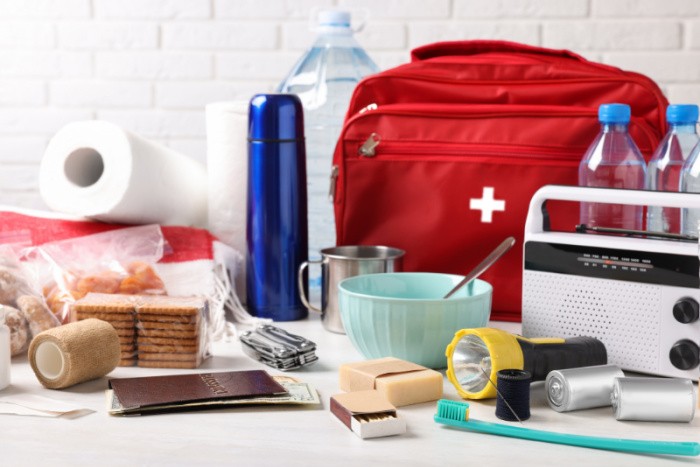

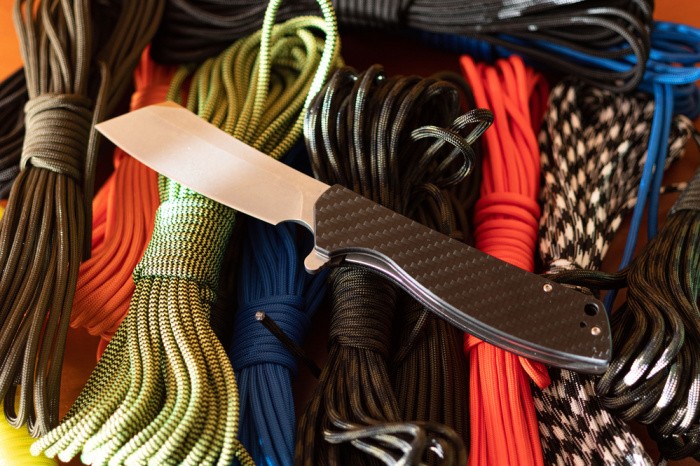
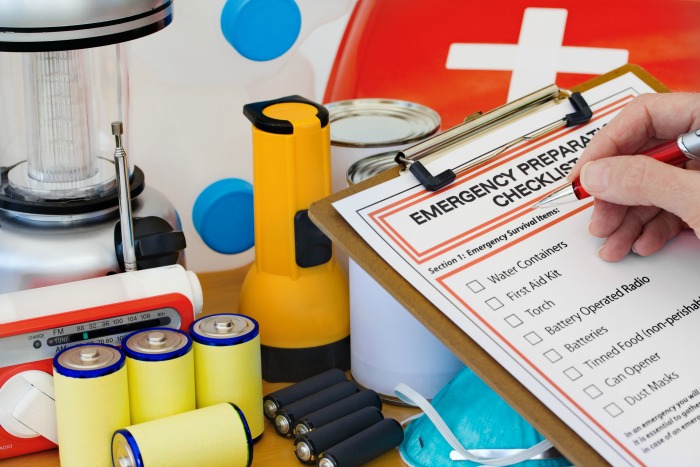
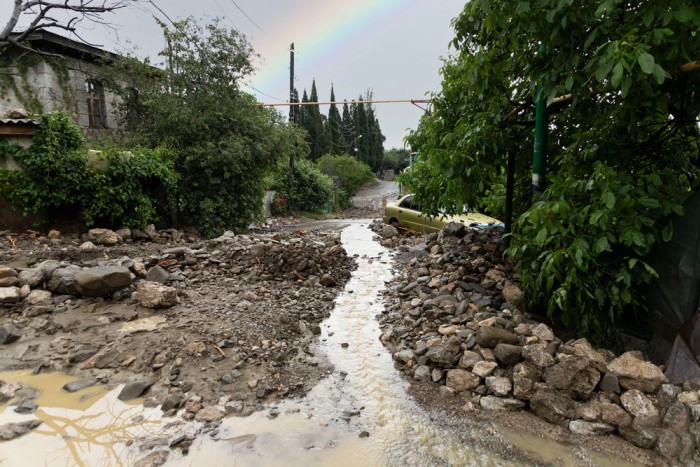

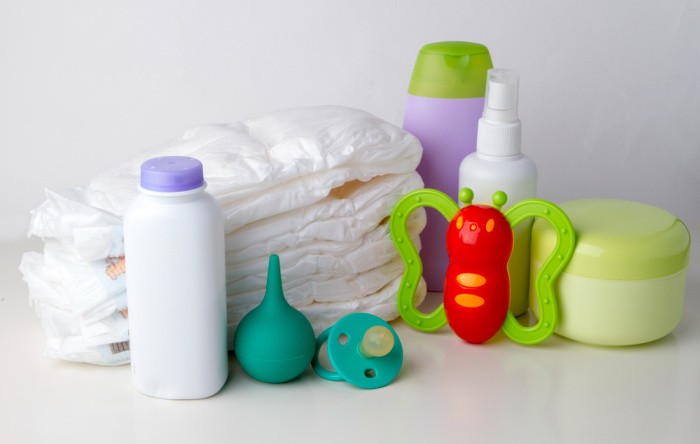
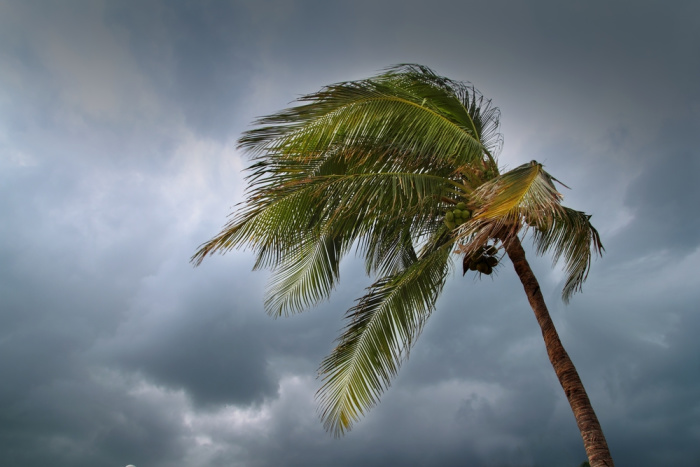

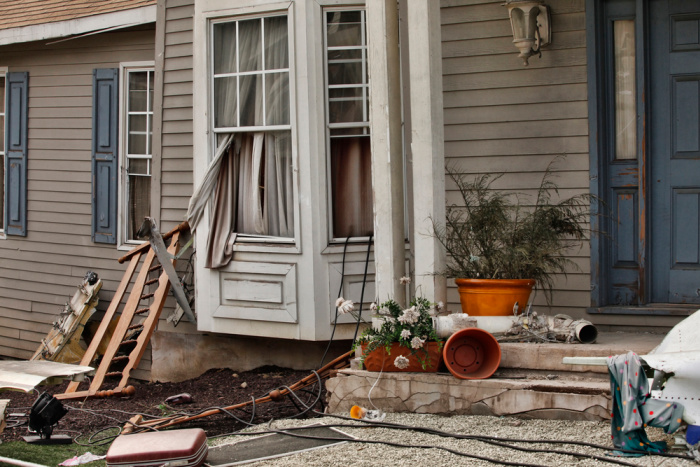
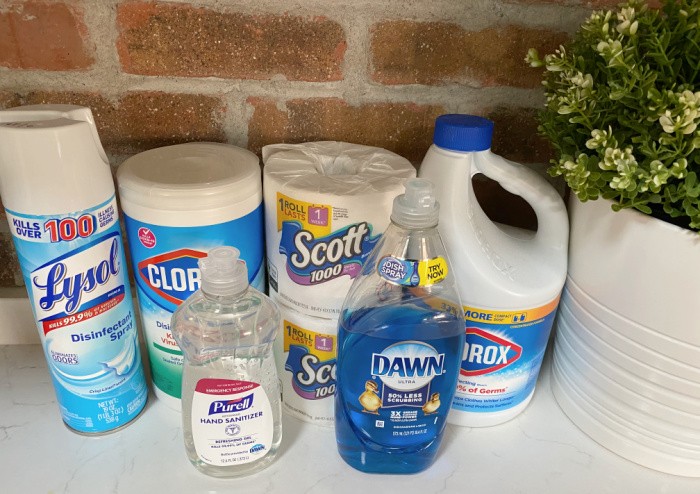
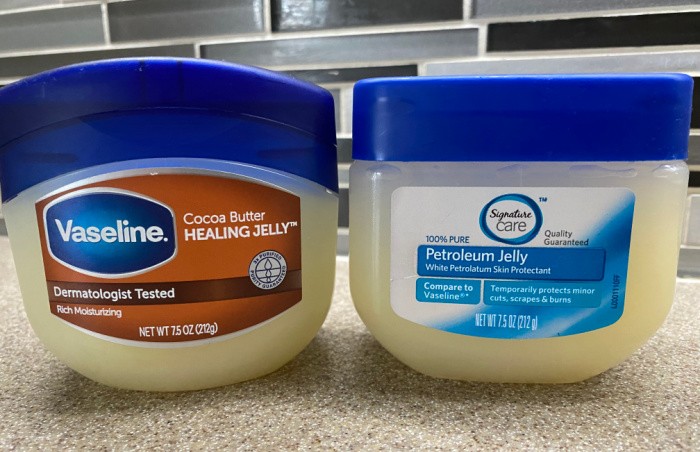
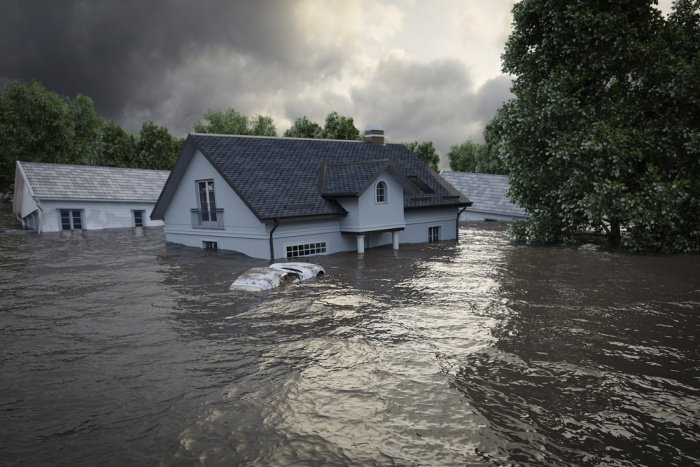

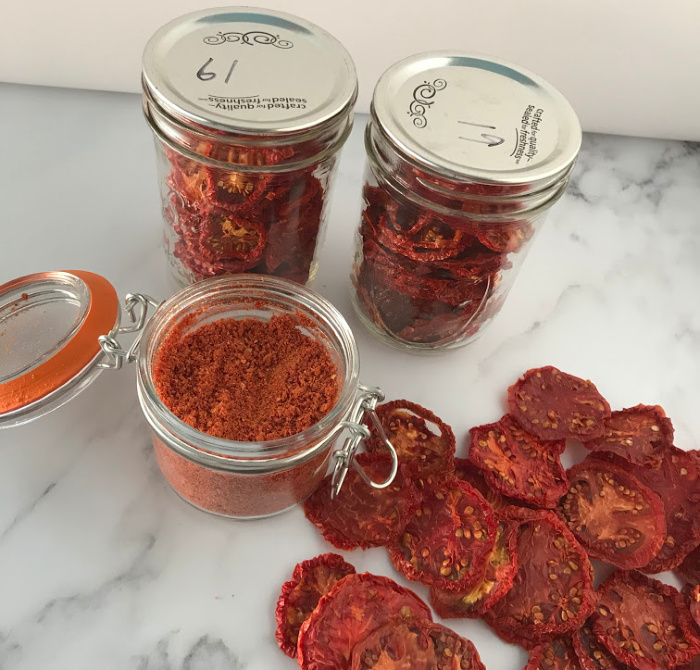
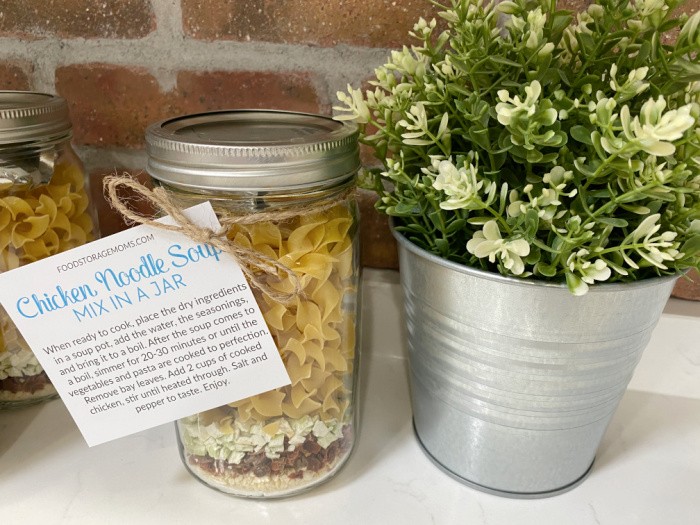
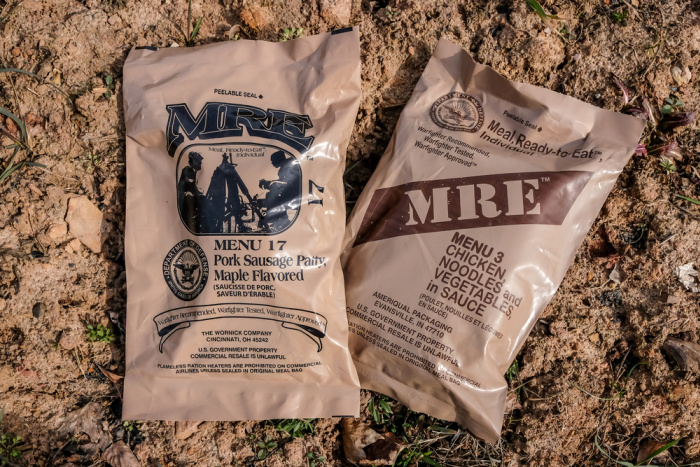

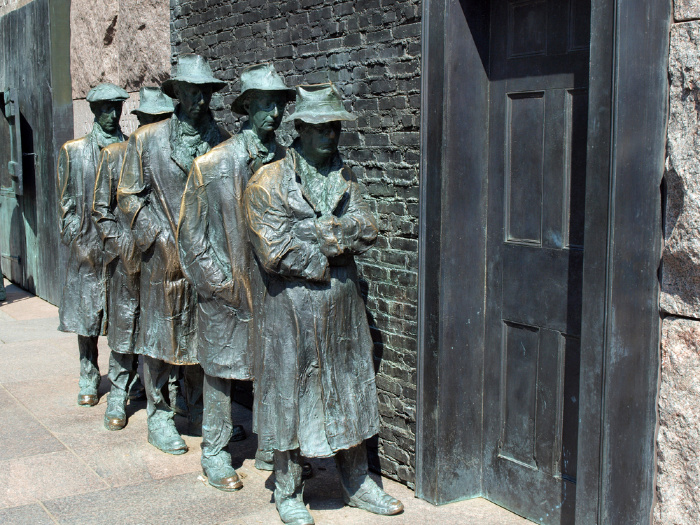
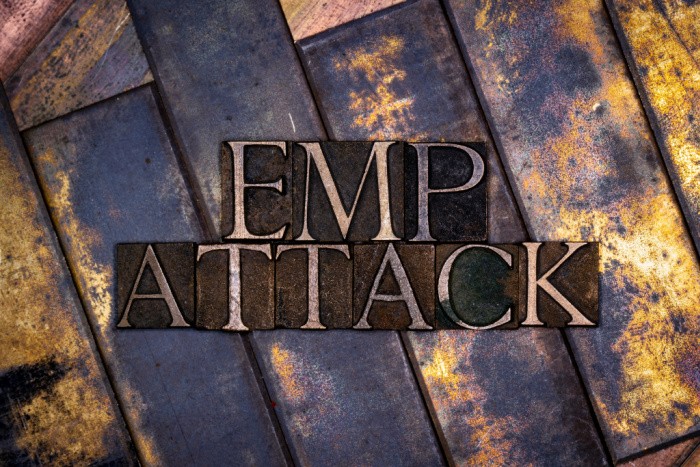

Include wills, medical power of attorney etc. because SHTF mighta hit you but the remaining world is ok. Don’t leave a mess behind for those who will inherit it.
Hi Matt, great comment, people should watch the show “Tidying Up” on Netflix, you wouldn’t like it but most women love it. My granddaughter and I watched the series like 3 times when she lived with me. After she moved home after school was finished she decluttered her mom’s house. (My daughter) LOL! You are so right about taking your will, power of attorney, emergency binder or whatever. Nailed it! Linda
Hello everyone. Most important things are water, food, shelter. Bad air might be okay if its only smoke laden and you uses a cotton cloth for a filter (limited).
Hi Henry, water, food and shelter are tops! Having a filter to protect ourselves from smoke would be awesome for sure. Linda
I stockpile according to sales for canned goods I use most often. Anything I can make with my slow cookers can be made over a wood stove, a wood fire, gas grille or gas burner, even as a pot in a hole. The same for stovetop meals, I grew up cooking on gas, on a wood range, and even in a wood range oven. It makes sense to spend money first on items I know I will use. Canned goods have expiration dates so I buy stuff I can use then replace.
My biggest advice is having an overall plan for what and how much you need, that allows you to purchase the larger survival items you need, and what needs to be replaced and rotated.
One example of these, are your first aid kits. Pre packed kits for your bug out bags (every single one in case 1 pack is lost, or standard household use are ok, just check them annually for and supplies that need replacing. But for long term first aid supplies, a large rough&tough tote to gather and store long term supplies is the best option. Seek out the 1950’s-60’s green covered ARC First Aid guide. It’s old enough to teach you how to make much of what you will need for ongoing supplies. Long term stocks of medicines and disinfectants age and become useless. Most kits don’t carry large amounts for extended use. So larger stock bottles are better sealed than pre packs. Examples of long term replacements are stock bottles of alcohol and plain gauze wipes over the presaturated wipes in envelopes. The seals dry up and leak, eventually going dry and no longer sanitary. In some clinics a stock bottle and clean, not sterile gauze are used. The current most effective wound cleaning method is soap and water with clean wipes or dressing. Stock bottles of Castile soap last longer than bars that dry out. The bars are good for clean handwashing before wound care. Even nitrile or plastic glove stocks won’t last forever, so clean technique will work. Only the gauze pads used over wounds need to be sterile or use well boiled rags. Stock jars of Vaseline use clean tongue depressors or boiled spoons to remove the necessary amounts to be used, before bandaging with clean dry rags to keep wounds soft, and help blisters reabsorb, they don’t stick to wounds either. I do recommend triple antibiotic ointment( not cream formulations cream breaks down too quickly, the petroleum based will last long term just keep them clean, and store in air tight bags or containers in a cool dry storage area. Cover with well boiled pieces of rags. These are a lot cheaper than the vaseline gauze bandages sealed for sterilization. H2O2 (H.Peroxide) cut 50/50 with sterile or cooled boiled water, will clean contaminates, infections and dead matter from large wounds. Rinse after with boiled, chlorinated water. Don’t rely on bleach to chlorinate water, it only has a life expectancy of 2 years. Seek out the longest lasting alternative to make water safe for drinking and first aid uses. You will need to research methods to make nuclear contamination of water, I’ve no expertise in that area. Boiled, strained, water can be used for making Normal Saline using boiled water and salt, so stockpiled Normal Saline isn’t necessary, a small supply to get started is enough. Stock bottles of betadine solution are useful to paint closed wounds to prevent incision or closed skin tears. 2×2 gauze pads with tape or thin strips of boiled rag, are better options over the long term than bandaids. Bandaid packaging breaks down and dries out and bandaid adhesive dries out or melts, making them useless. You will need to stock materials for stitching wounds, plus needles and needle holders. they will need to be boiled plus instructions how to stitch and later remove the stitches once the wound has closed. Colonial wives on the frontier, did this routinely with good survival rates. Vodka is an alcohol substitute, and using burning hot metal applied for cauterizing bleeding wounds. it only takes about a minute to stop a major bleed. If you can find a battle first aid book or a long term survival manual, you can learn field IV techniques. A mid wife or a midwifery hand book will give you techniques for pre and post partum care as well as delivering a baby and caring for a new born. There will be children born, I guarantee that. Try to consider every possible medical emergency and have the supplies and knowledge to deal with them.
I’m a firm believer in having a physical library for every potential need. Computer backup won’t work. When inventorying food supplies, you need to inventory your medical supplies as well so you can update as needed. Storage of medical supplies needs to be clean, dry, and dark, for the best shelf life. They can be organized in those large, tough, well sealed labelled totes. Freezer storage bags or any kind of clearly, labelled storage bags can be used to organize items within. Everyone should have a general understanding of using first aid supplies. But in a group situation, 1 or 2 people should take the time to gain in depth knowledge of advanced techniques beyond the basics. Healers are an important part of a survival community. A group of mutually like minded individuals will have a better chance at long term survival, than a single family trying to make a long term effort to survive. Just saying.
Many have a good general knowledge of prepper supplies and long term survival stocking. But I don’t see many who have a knowledge of long term first aid preparation or how to replace them over the long term, when there are no more pharmacies to buy replacements from. If you can find an older nursing textbook on basic patient care, the old fashioned way, it will be useful. People, especially children and the elderly, will get sick, so good basic nursing care will be useful. 2 ancillary items that can be used to treat bedsores and infected wounds, are sugar, and honey. So earmark some of your food stocks of them for use in health care. Of course having glass thermometers and blood pressure equipment, with the knowledge for using them can help assess the stability of patients. A manual of herbal medicine will be very useful, for long term ways to treat illnesses after stockpiled medicines are exhausted. It’s better that surrendering people to die from illnesses and symptomatic treatments. Well care assessments by somebody with some experience can catch treatable illnesses and conditions before they become terminal. People still may not have the longevity we currently have. But as time goes on people will regain vitality and resistance to infection from living off the land, and a healthier lifestyle, that will help. This is a long comment, but it’s an important part, I feel as having food stockpiles, life skills, shelter, and growing crops for a long term food supplies for survival.
Hi Mary Ann, I LOVE LOVE LOVE your comment. I have 99% of the supplies you are talking about. I did learn that antibiotics can last 10 years past their expiration date according to my prepper doctor. He taught me the smell test. If they smell like vinegar or an off smell, discard them. He has dementia now so I can no longer get the amounts I used to buy for pennies on the dollar. I did check with the Jase Medical company which has a great medical kit but it’s not good enough for me. They can only prescribe 8 tablets a year for a UTI and 84 tablets of Amoxicillin per year. I’m disappointed because I thought I found an outlet like my prepper doctor. Nope, you can get your daily meds and pay cash for the year like thyroid medicine or high cholesterol. I want antibiotics. Thank you for sharing your knowledge with us, Linda
Yes I realize getting antibiotics for the long haul is hard because of prescription limits, and pain killers are far more restricted. Aspirin doesn’t last forever, it degrades quickly. Some Preppers stock up on fish antibiotics, but it’s hard to measure a human dose. Amoxicillin is in short supply due to manufacturing limits, so it’s hard to even get it too treat an infection, unless nothing else will work. Nothing will last forever, so get good books on herbal medicine is my recommendation when prepping for an unknown disaster.
My husband uses a small reverse osmosis setup to get “clean, safe, water, for his saltwater tank. It doesn’t require electricity to run. That might help to purify rain water or surface water for drinking, cooking, and sterilizing. Cleaned water can be canned for later usage. Handy to keep with emergency first aid supplies. The best rags to save for dressings and bandages, should be cotton, but other fabrics will work. I just feel that prepping for permanent survival after some catastrophic event, requires long range planning and giving thought to how you replace medical supplies as stockpiled supplies run out. My strongest recommendation is to gather a physical reference library covering every possible subject that might be needed for making a living, off grid. Some books for children, for teaching reading, math, history, and basic sciences. There is no need to return to ignorance. To restart a society basic subjects and writing will be needed. The skills to keep records will be vital. A lot is written about temporary survival prepping, but there is much less available on long term or permanent survival off grid. It’s not all stockpiling weapons & ammo, food and supplies, even clothing, they will all runout, wear out, or breakdown eventually. What will be necessary to survive permanently, such as seeds and implements for farming and raising grains, harvesting meat & fish from the land, preserving every speck of food possible to last year round, maintain a safe water supply, general carpentry & building housing and outbuildings, forest husbandry, making new clothing, and recycling everything possible. In short a whole new sustainable life.
Hi Mary Ann, I totally agree with you but unfortunately not many will survive that type of life. We all know that. BUT many will survive and thrive because they have taken the time to learn skills which we all need. Mental health will be an issue as well. It’s truly about being prepared for the unexpected. Linda